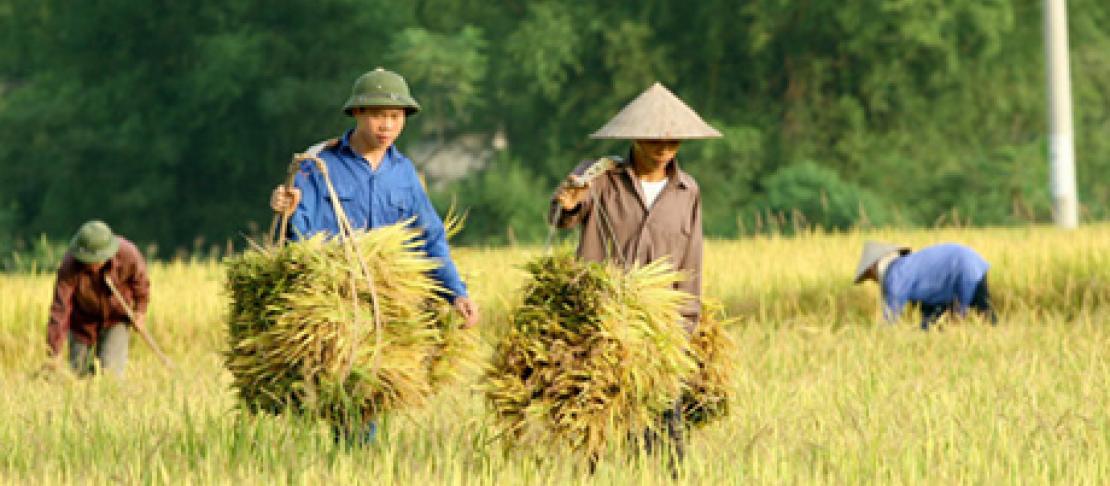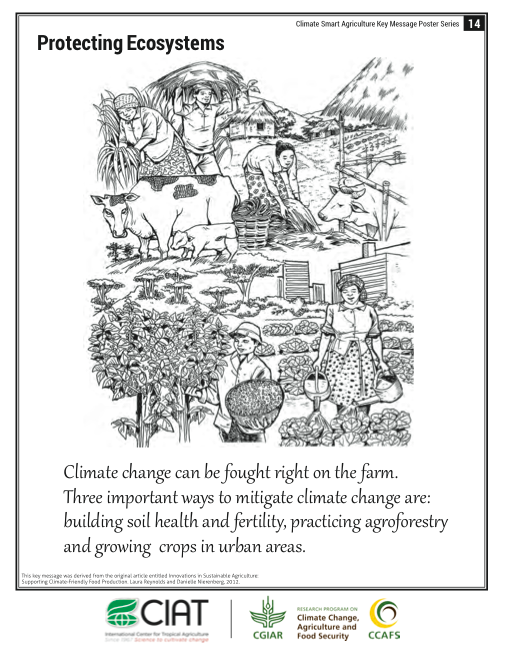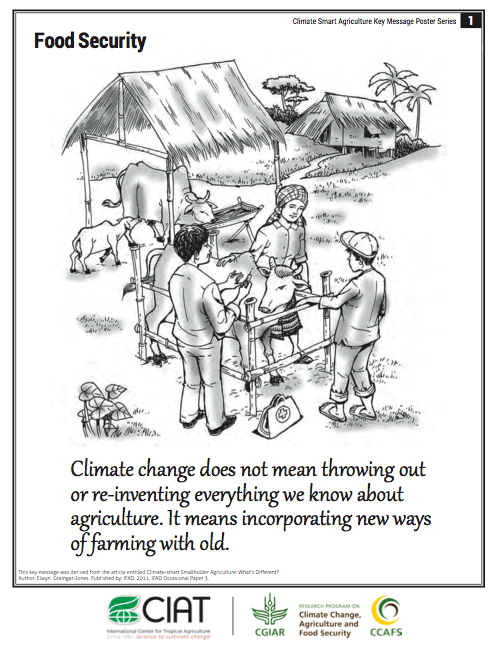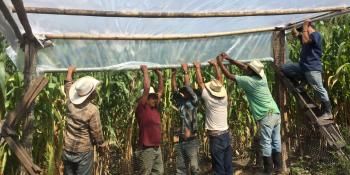New guidance for climate-smart agriculture in Southeast Asia

Sourcebook for Southeast Asia showcases a wide range of climate-smart agriculture (CSA) approaches.
Understanding climate change and its impacts on farming is crucial for decision-makers. Yet there is a gap between what policy makers know and what research shows can work on the ground.That gap continues to plague the research and development community - and those mandated to prepare adaptation and mitigation policies and plans.
Sourcebook
A new sourcebook, and accompanying poster learning series, seeks to bridge that gap by referencing a wide range of climate-smart agriculture (CSA) practices and demonstrated technologies to improve adaptation, increase productivity, enhance livelihoods, and contribute to sustainable development affected by climate changes.
Compiled and repackaged by Dr. Julian Gonsalves and a resource team, the CSA sourcebook draws from a rich pool of literature from over 700 sources. The compilation provides succinct, relevant and timely information about climate challenges and potential solutions from previously published work in a simplified or a shortened form.
Policy makers, planners in government, local research administrators, civil society partners and researchers have to find ways to increase agricultural productivity in an environmentally friendly way - and in a manner that helps households and food systems adapt to climate change - all the while reducing emissions from agriculture.
“Environmentally friendly and sustainable agricultural intensification requires that key players have a shared understanding of the premises and frameworks involved,” said Gonsalves.
“Fortunately, a vast reservoir of science-based knowledge is already on the shelf. What remains to be done is to make this information about CSA accessible and easily understood by decision-makers in governments, and those who deliver outcomes on the ground.”
Staying ahead of the curve on climate change
As climate change impacts each region of the world differently based on topographical and ecological contexts, the papers in this sourcebook provide examples of approaches and climate-smart practices from around the world.
While the focus is on challenges specific to Southeast Asia, solutions may come from, or already have been tested elsewhere. The articles demonstrate that adaptation efforts are already being implemented, and a wide range of approaches and strategies are available.
The sourcebook and poster series address a broad scope of issues under the topic of agriculture, including biodiversity and genetic erosion and diminishing natural resources. They examine the potential consequences of these changes for food system sustainability, gender relations and inequality, and social security safety nets - particularly during natural disasters and emergency situations.
Aside from policy and decision-makers, this sourcebook is also intended for technical and other readers who would like to learn more about CSA, and is a useful reference in training and teaching. The poster series is based on key messages drawn from the articles and intended to be used in trainings as discussion starters for example.
Southeast Asia on the frontline
As one of the most vulnerable regions in the world, Southeast Asia is on the frontlines of the battle against climate change. Hundreds of millions of people are at risk as increasing temperatures, flooding, and rising sea levels threaten livelihoods, incomes and food security.
Rapid economic expansion and the growth of megacities are encroaching into these areas. Changes will indirectly affect healthcare and social service provisions, and directly affect the land farmed by communities.
This sourcebook is about the opportunities and options available for decision-makers in balancing economic growth with food security concerns, while safeguarding social and environmental equity and sustainability, and ensuring that these systems are robust enough to respond to future climatic shocks.
Shedding light on uncertainty
“Of all the challenges presented by climate change, one of the biggest is uncertainty. The lack of certainty about how climate change will impede or impact economies and communities that drive them, reduces our ability to respond effectively. Yet for this reason, planning is critical,” said Dr. Dindo Campilan, Asia Director for the International Center for Tropical Agriculture (CIAT).
“This sourcebook is intended to provide a sound foundation of knowledge, outlining what we know about climate change, and what measures might be taken to mitigate its most harmful impacts.”
This publication represents almost two years of work and has been prepared as an output for the CCAFS project: Integrated agricultural technologies for enhanced adaptive capacity and resilient livelihoods in climate-smart villages (CSVs) of Southeast Asia, led by CIAT for the CGIAR Research Program on Climate Change, Agriculture and Food Security (CCAFS).
Downloads
Climate-Smart Agriculture Poster Series






